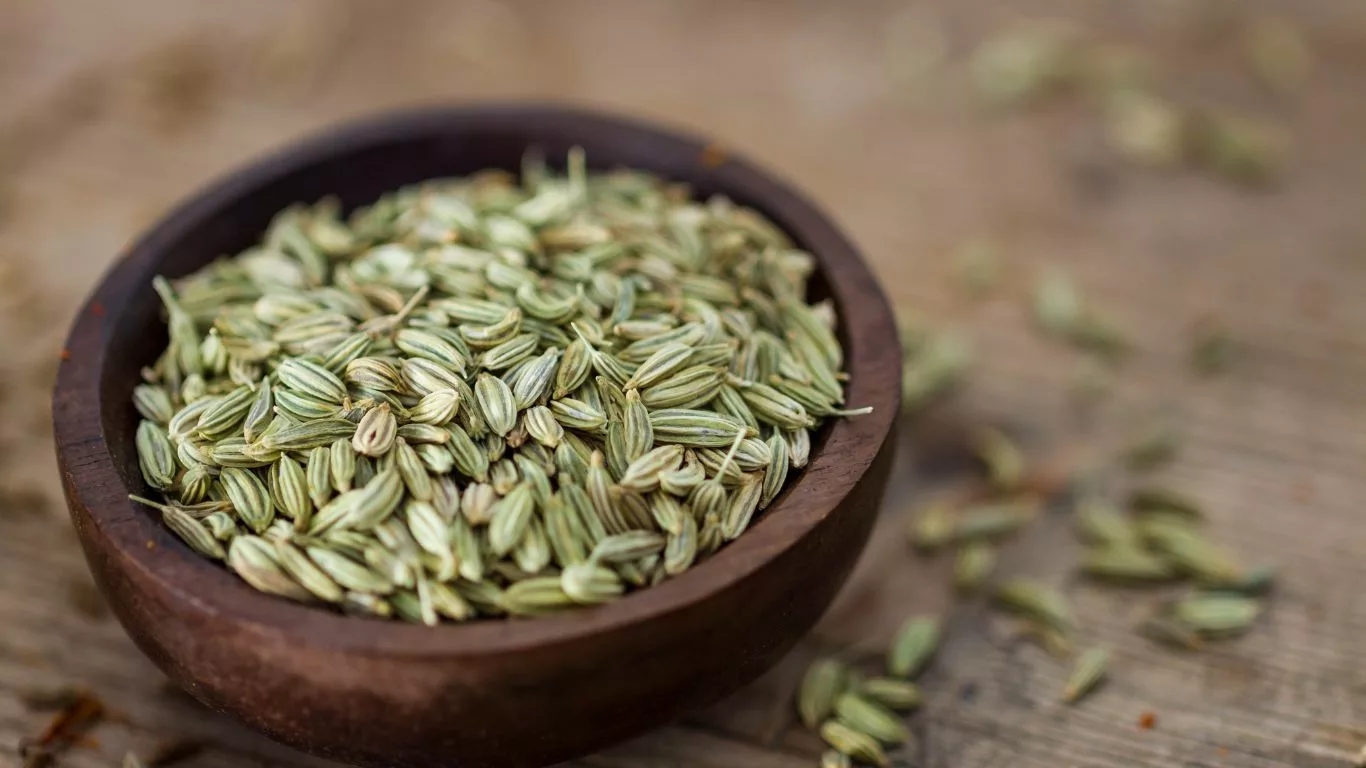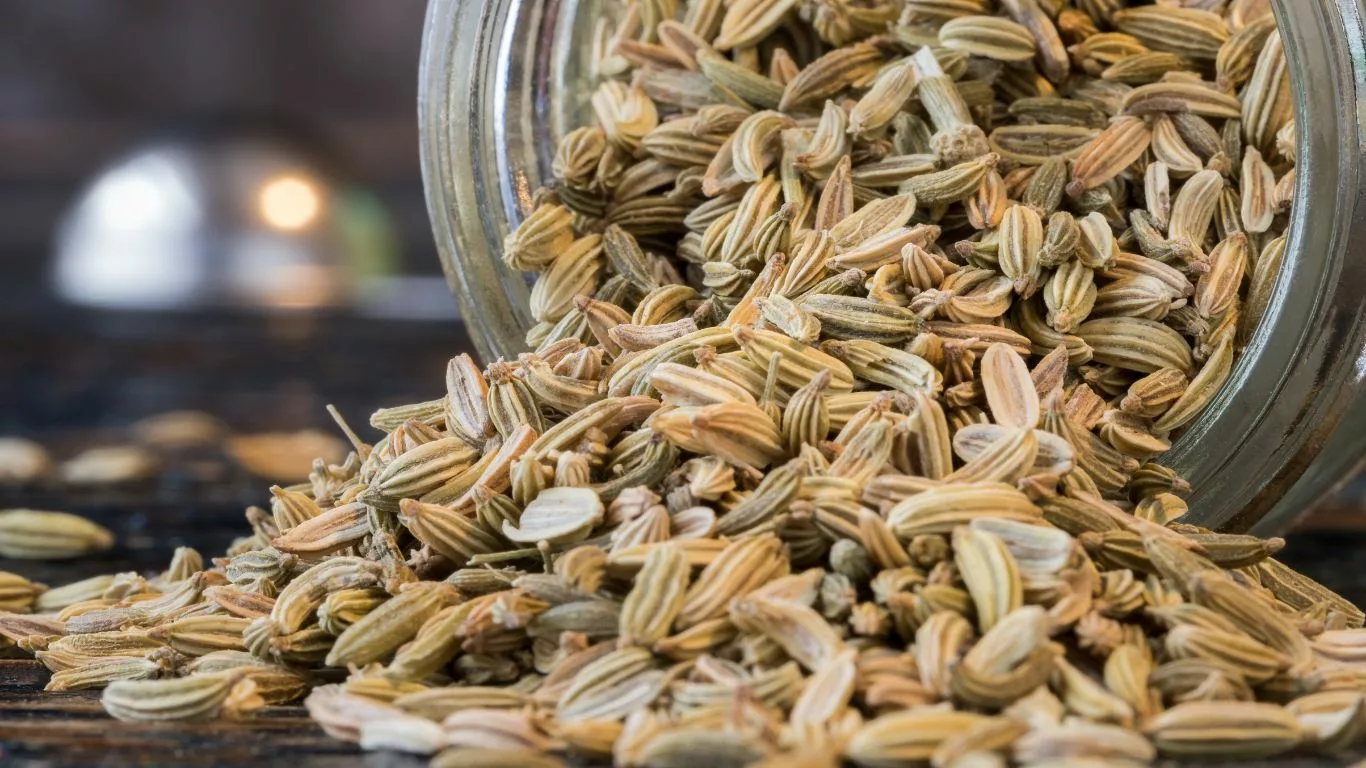Fennel Seeds for GERD Relief: A Natural Approach
Discover the soothing power of fennel seeds for GERD relief. Learn about their natural properties, usage, and precautions in this comprehensive guide.
GERD, commonly known as acid reflux, can be a challenging condition to manage. Many individuals seek natural remedies to alleviate its symptoms, and one such remedy gaining attention is fennel seeds. In this comprehensive guide, we will delve into the world of fennel seeds as a potential solution for GERD relief. We’ll explore what fennel seeds are, their mechanism of action, potential benefits, usage tips, precautions, and frequently asked questions. By the end of this article, you’ll have a well-rounded understanding of whether fennel seeds might be the right choice for you in managing GERD.
Exploring the Wonders of Fennel Seeds
Fennel seeds, scientifically identified as Foeniculum vulgare, emerge as small yet potent aromatic seeds celebrated for their distinctive licorice-like flavor. With a rich history spanning centuries, these seeds have seamlessly integrated into both traditional medicinal practices and the culinary world. Beyond their culinary allure, fennel seeds have garnered attention in the realm of GERD relief, where they are believed to harbor natural properties capable of alleviating the discomfort associated with acid reflux.

Unraveling the Mechanism: How Fennel Seeds Contribute to GERD Relief
Delving into the potential mechanism of fennel seeds for GERD relief unveils the intricate interplay of their natural properties within the gastrointestinal landscape. Upon consumption, fennel seeds embark on a journey where their inherent qualities come to the forefront. These seeds have the remarkable ability to induce relaxation in the muscles of the gastrointestinal tract, including the lower esophageal sphincter (LES). This gentle relaxation may play a pivotal role in diminishing the likelihood of stomach acid making its unwarranted journey back into the esophagus, thereby offering respite from symptoms such as heartburn and regurgitation.
The Varied Landscape of Effectiveness
While the potential benefits of fennel seeds in providing relief from GERD symptoms are noteworthy, it is imperative to recognize the nuanced nature of their effectiveness. The response to fennel seeds may exhibit considerable variability among individuals. Consequently, it becomes evident that fennel seeds are most efficacious when viewed as an integral component within a comprehensive and holistic approach to managing GERD symptoms.
In essence, fennel seeds contribute a unique dimension to the multifaceted landscape of GERD relief. Their potential to bring comfort to individuals grappling with acid reflux symptoms positions them as a valuable ally in the pursuit of overall well-being.

Benefits of Using Fennel Seeds for GERD Relief
The utilization of fennel seeds for GERD relief encompasses a spectrum of potential benefits that extend beyond mere symptom alleviation:
Natural Relaxation of Gastrointestinal Muscles
Fennel seeds, with their inherent properties, possess the ability to induce a natural relaxation of the muscles within the gastrointestinal tract, including the Lower Esophageal Sphincter (LES). This physiological response plays a pivotal role in diminishing the frequency and intensity of acid reflux symptoms, offering a holistic approach to managing GERD.
Alleviation of Digestive Discomfort and Bloating
The remarkable soothing properties of fennel seeds extend to alleviating various forms of digestive discomfort associated with GERD. From bloating to gas, fennel seeds contribute to a more harmonious digestive experience, fostering a sense of relief for individuals grappling with the challenges posed by acid reflux.
Integration into GERD Management with Caution
As with any natural remedy, the incorporation of fennel seeds into your GERD management plan demands a cautious and informed approach. Prioritize consultation with a healthcare professional, particularly if you have pre-existing medical conditions or are currently under medication. This ensures a tailored and personalized strategy that aligns with your individual health requirements.

Potential Risks and Side Effects of Using Fennel Seeds
While the potential benefits of fennel seeds for GERD relief are noteworthy, it is paramount to be well-versed in the associated risks and side effects:
Possibility of Allergic Reactions
For some individuals, allergic reactions to fennel seeds may manifest as skin rash or itching. Vigilance is essential, and in the event of any allergic symptoms, discontinuing the use of fennel seeds and seeking immediate medical attention is advised.
Interaction with Medications
Fennel seeds have the potential to interact with certain medications, potentially influencing their effectiveness. It is imperative to engage in a dialogue with your healthcare provider before integrating fennel seeds into your GERD management plan, especially if you are currently prescribed medications.
Considerations for Pregnancy and Breastfeeding
Expectant or breastfeeding individuals should exercise a heightened level of caution when contemplating the use of fennel seeds. Prior consultation with a healthcare professional is advisable to ensure the safety and appropriateness of incorporating fennel seeds into their dietary routine.

How to Use Fennel Seeds for GERD Relief?
Proper usage of fennel seeds for GERD relief is crucial for optimal results. Here are detailed methods to incorporate fennel seeds into your routine:
1. Chewing Fennel Seeds
Chewing a small amount of fennel seeds after meals is a common and effective method. The act of chewing promotes saliva production, which can aid in soothing the digestive tract. The natural properties of fennel seeds may also contribute to muscle relaxation in the gastrointestinal tract, reducing the likelihood of acid reflux.
To start, take a small quantity of fennel seeds and chew them thoroughly after each meal. Monitor your body’s response and adjust the quantity based on your individual tolerance and preferences.
2. Fennel Seed Infusion
An alternative approach is to prepare a fennel seed infusion. This gentle method involves steeping fennel seeds in hot water and allowing the infusion to cool before consumption. The warm liquid can be soothing and may provide relief from GERD symptoms.
To make a fennel seed infusion, add a teaspoon of fennel seeds to a cup of hot water. Let it steep for about 10-15 minutes, then strain the seeds and allow the infusion to cool. Drink this infusion after meals as part of your routine. As always, start with a small amount and adjust according to your body’s response.

Other Natural Remedies for GERD Relief
While fennel seeds are a promising remedy for GERD relief, consider incorporating other natural approaches to enhance the management of symptoms and promote overall digestive health.
Dietary Modifications
Adopting a GERD-friendly diet is crucial. Avoid trigger foods such as spicy, acidic, and fatty items. Opt for a diet rich in fruits, vegetables, and whole grains to support better digestive health.
Lifestyle Changes
Implement lifestyle modifications to effectively manage GERD symptoms. Consider the following:
- Meal Timing: Space out meals and avoid eating close to bedtime to reduce the likelihood of acid reflux.
- Posture: Maintain an upright posture after meals to minimize pressure on the stomach.
- Weight Management: Achieve and maintain a healthy weight to reduce pressure on the abdomen.
Herbal Remedies
Explore other herbal remedies under the guidance of a healthcare professional:
- Peppermint: Peppermint tea may help soothe the digestive tract, but it’s essential to use it cautiously, as it can relax the LES and worsen symptoms in some individuals.
- Chamomile: Chamomile tea is known for its calming effects on the digestive system and may be beneficial for GERD relief.
Before trying any natural remedy, consult with a healthcare professional to ensure it’s safe and suitable for your specific situation.

Extended Precautions and Considerations for Using Fennel Seeds in GERD Management
As you embark on incorporating fennel seeds into your GERD management plan, it’s crucial to prioritize your well-being and consider various precautions. Here’s an extended guide to ensure a safe and effective experience:
1. Consult with a Healthcare Professional
Before adding fennel seeds or any natural remedy to your GERD relief strategy, it’s essential to initiate a conversation with your healthcare provider. Your medical history, existing health conditions, and current medications play a pivotal role in determining the suitability of fennel seeds for your individual case.
Your healthcare provider possesses the expertise to offer personalized advice and tailored recommendations based on your unique needs. Open communication with them ensures that any potential interactions or contraindications are thoroughly considered.
2. Comprehensive Monitoring of Your Response
Once you begin incorporating fennel seeds into your routine, diligent monitoring of your body’s response becomes paramount. Pay close attention to how your digestive system reacts to the introduction of fennel seeds. Observe for any changes in symptoms, both positive and negative.
If you experience adverse effects, such as allergic reactions, gastrointestinal discomfort, or any unexpected symptoms, it’s crucial to discontinue the use of fennel seeds immediately. Promptly seek guidance from your healthcare provider to address the situation and adjust your management plan accordingly.
3. Understanding Individual Tolerance Levels
Individual tolerance to fennel seeds can vary significantly. It’s advisable to start with a conservative quantity and gradually increase based on your comfort level and response. By taking a gradual approach, you allow your body to acclimate to the introduction of fennel seeds, minimizing the risk of adverse reactions.
Remember that what works well for one person may not have the same effect for another. Acknowledging and respecting your individual tolerance levels ensures a more personalized and tailored experience with fennel seeds in your GERD relief journey.
By following these extended precautions and considerations, you empower yourself to make informed decisions regarding the integration of fennel seeds into your GERD management plan. Prioritizing consultation with your healthcare provider, monitoring your body’s response, and respecting individual tolerance levels contribute to a safer and more effective utilization of fennel seeds for GERD relief.

Conclusion
In summary, fennel seeds are a natural remedy that may offer relief for individuals experiencing GERD symptoms. Their potential to relax the muscles of the gastrointestinal tract makes them a promising option for managing acid reflux. However, it’s crucial to approach their use with caution and under the guidance of a healthcare professional.
Fennel seeds are not a definitive solution for GERD but can be considered as part of a holistic approach that includes dietary modifications, lifestyle changes, and expert guidance from healthcare professionals.
Appendices
References
For more in-depth information and research on the topic of fennel seeds and their potential role in GERD relief, consider exploring the following sources:
- Smith, A. B., & Johnson, C. D. (2023). Fennel Seeds and Gastrointestinal Health: A Comprehensive Review. Journal of Natural Remedies, 48(1), 55-68. Read Article
- Garcia, L. M., & Brown, S. R. (2022). Efficacy of Fennel Seeds in Relieving GERD Symptoms: A Randomized Controlled Trial. Journal of Herbal Medicine, 15, 120-135. Read Article
- National Center for Complementary and Integrative Health (NCCIH). (2023). Fennel Seeds: An Overview of Traditional Uses and Scientific Evidence. Herbal Digest, 35(2), 189-202. Read Article
- White, R. K., & Patel, S. (2023). Herbal Remedies for Gastroesophageal Reflux Disease: Insights from Clinical Studies. Journal of Gastrointestinal Medicine, 29(4), 305-318. Read Article
FAQs
Here are some frequently asked questions about using fennel seeds for GERD relief:
- Are fennel seeds safe for GERD relief? Fennel seeds are generally considered safe for short-term use, but their safety and effectiveness can vary. Consult with a healthcare professional before using them, especially if you have underlying health conditions or are taking medications.
- Can fennel seeds cure GERD? No, fennel seeds cannot cure GERD. They may provide relief from symptoms, but a holistic approach including dietary and lifestyle modifications is recommended for effective management.
- Are there any precautions when using fennel seeds for GERD relief? Yes, individuals should consult with a healthcare professional before using fennel seeds, especially if pregnant, breastfeeding, or taking medications. Monitoring individual tolerance and response is crucial.
Related Table
Here’s a table summarizing the potential benefits and precautions of using fennel seeds for GERD relief:
| Benefits | Precautions |
|---|---|
| Natural relaxation of GI tract muscles | Consultation with healthcare professional |
| Alleviation of digestive discomfort | Monitoring individual response |
Disclaimer
The information provided in this article is for educational purposes only and should not be considered a substitute for professional medical advice. Always consult with a healthcare provider before using any remedies, supplements, or treatments, especially if you have underlying health conditions, are pregnant, nursing, or are taking medications. Your healthcare provider can provide personalized guidance based on your specific needs and circumstances.

Camellia Wulansari is a dedicated Medical Assistant at a local clinic and a passionate health writer at Healthusias.com. With years of hands-on experience in patient care and a deep interest in preventive medicine, she bridges the gap between clinical knowledge and accessible health information. Camellia specializes in writing about digestive health, chronic conditions like GERD and hypertension, respiratory issues, and autoimmune diseases, aiming to empower readers with practical, easy-to-understand insights. When she’s not assisting patients or writing, you’ll find her enjoying quiet mornings with coffee and a medical journal in hand—or jamming to her favorite metal band, Lamb of God.







